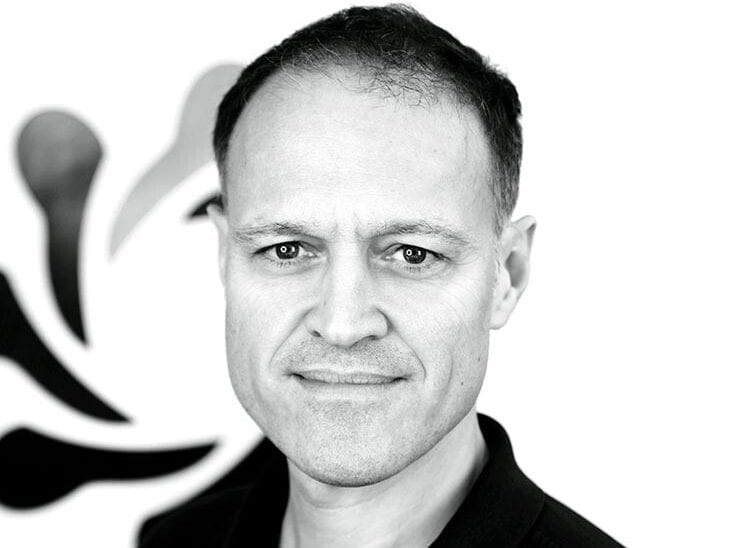Robert Chapman, co-founder of Firebrand Training

In our latest Founder Feature, we’re talking with Robert Chapman, co-founder of Firebrand Training
What made you decide to take on the challenge of founding your business?
That’s simple – my wife and my entrepreneurial spirit. For a long time I wanted to do my own thing but I knew I needed to be sure that whatever I threw myself into would be the right fit and the right opportunity. When the chance arose to join Firebrand Training and shape its journey, it was my wife who was the first one to say yes! Twenty years later and here I am, grateful for her push. I couldn’t imagine doing anything else.
Who are you and what is your story?
I’ve been a self confessed tech and gadget geek for as long as I can remember. Aged 12 I was writing computer programs at home on my Commodore Vic 20 in my spare time, writing games by copying them from magazines and modifying them. My entrepreneurial drive kicked in aged 16 when, along with a friend of mine, we started a company called Kursor Computing and ended up selling a game to a publisher for £100. After continuing my love of tech at university, studying Information Technology, I did an industrial placement year with IBM and joined the company full time after I graduated. That was the beginning of my career in sales and marketing for technology companies and what has led me to where I am today.

Aside from tech, I’m a big cyclist and love music, photography and travelling (which I hope I’ll be able to enjoy again later this year).
Tell us about some of the biggest obstacles you’ve had to overcome?
The pandemic is undoubtedly the biggest obstacle we’ve had to overcome in the last 20 years but not the only one we’ve had to navigate as a company.
Throughout the 20 years I’ve been a part of Firebrand Training we’ve seen financial crashes and have faced unexpected curveballs, but perhaps the most significant challenge would be the events of 9/11. Firebrand Training was only in its early stages and our instructors were all US-based and flying over to the UK to deliver training. After the events of that day it was apparent that our business model would have to adapt. It led to a challenging few months pivoting and ensuring that we could still deliver training and maintain the business, which was still very much in its infancy.
What I’ve learnt is that when starting your own business there will always be unexpected challenges and push backs but learning to manage crises is what will help to ensure your business will weather the storm.
How are you measuring your success? What are your metrics?
At Firebrand we measure success through our NPS score, measuring both our customers and our staff. We’re passionate about our customers and want to ensure we’re doing everything we can to deliver outstanding training. We can’t do that without the people of Firebrand. Every six months we survey everyone who works for Firebrand to find out how we are doing as an employer.
Ultimately only happy customers and happy staff will lead to a thriving business, which is why this is so important to us and a key metric. As with any other growing business we also have set monthly metrics to track lead generation and conversion rates to keep a close eye on the growth of the business.
Do you see yourself as an underdog?
Absolutely! In fact I think that’s embedded in our name. A Firebrand is someone who challenges the status quo and here at Firebrand Training we’re all passionate about tech and ensuring everyone has access to these vital skills and challenging outmoded beliefs. In fact, I think the underdog mindset pushes us even harder as a team. As a smaller training company we’re driven to show what we can produce and achieve!
What has surprised you in your journey so far?
The biggest surprise so far is how many people comment on the freedom of being able to work for oneself and the misunderstandings around starting and running a business.
It’s of course a great privilege to be able to work for myself, however the challenges that come with the responsibility of starting, growing and running a business are enormous. It’s a 24/7 job and learning to switch off is something that takes time to embrace but I wouldn’t have it any other way – although there are days when you wish someone else would take the decisions and be responsible for the outcome!
Can you tell us who your mentors and heroes are, and what impact they’ve had on you?
I’ve been influenced by so many different people, from those I’ve known to authors who’ve inspired me.
I wouldn’t be where I am today without my parents, who encouraged me into computing and allowed me to escape into that world; my wife who supported the decision for me to start Firebrand and continues to encourage and support me; Stefano Capaldo, who is my co-founder has always challenged Firebrand and my thinking; my great friend Brett Raynes, a fantastic sounding board and source of knowledge and wisdom.
I’ve learnt so much about running businesses from reading the books of: Geoffrey Moore, Jim Collins and Verne Harnish and would thoroughly recommend these.
What’s one piece of advice you’d give to budding innovators taking the same journey?
I always struggle to offer just one single piece of advice as there are so many parts to this journey. In typical Firebrand fashion I’d like to offer my top five rules:
- Look after your staff.
- Embrace problems, they are just the next step on your path.
- Communicate often and clearly.
- Be consistent.
- Treat everyone like they’re a customer.